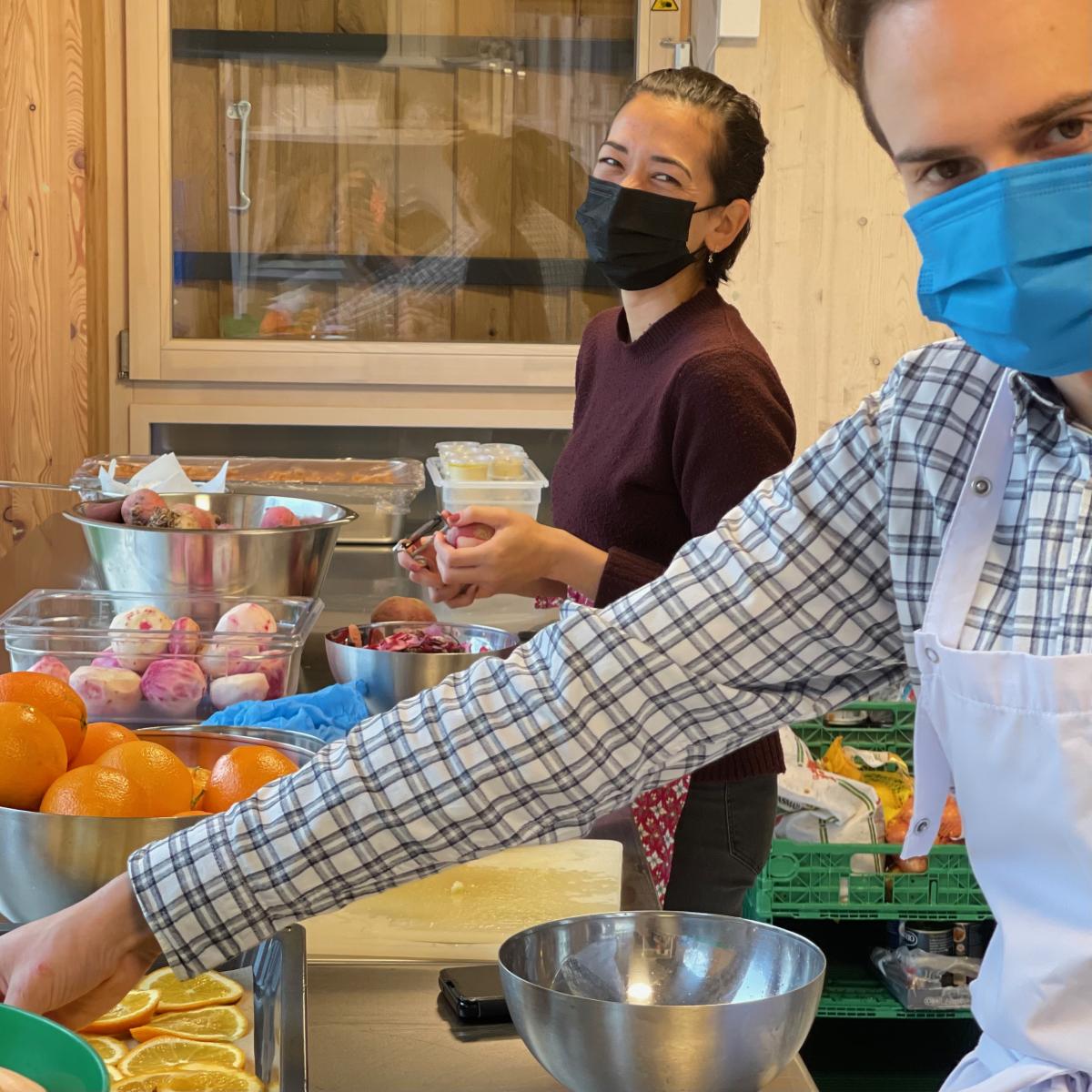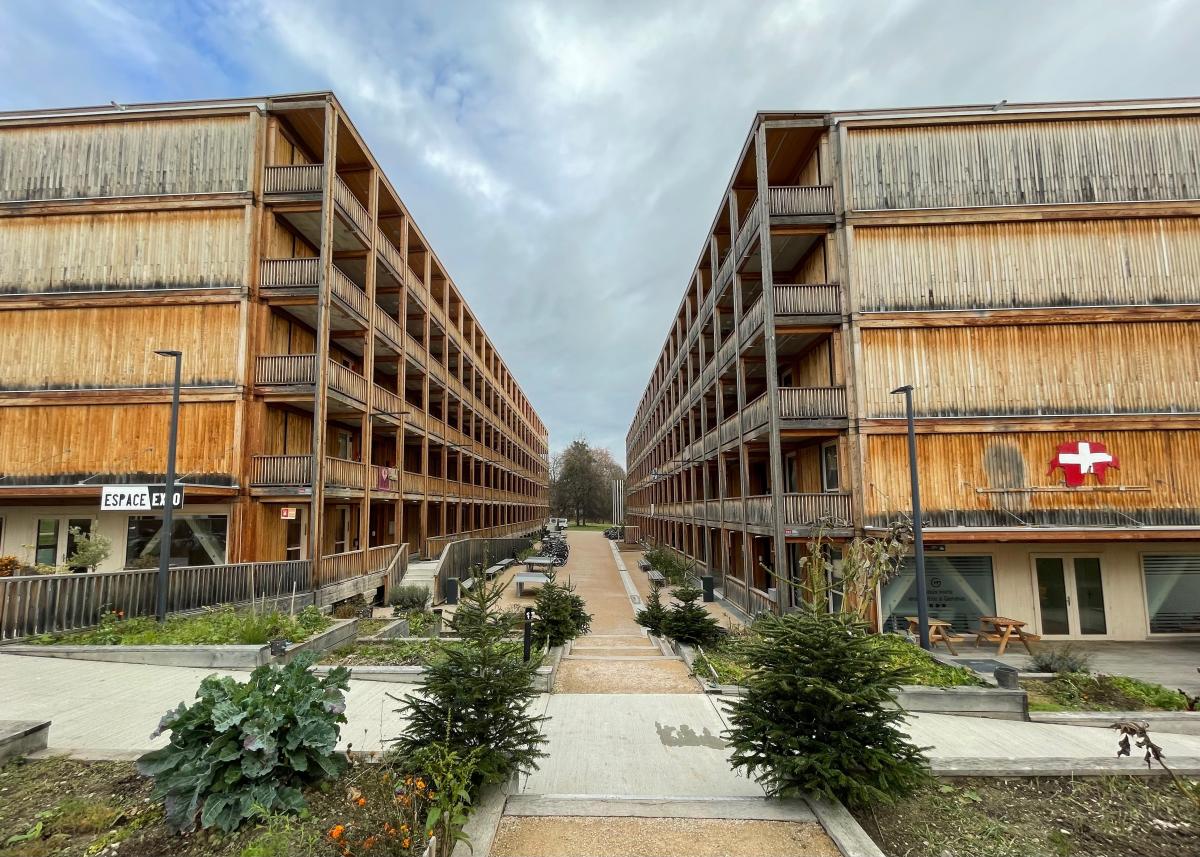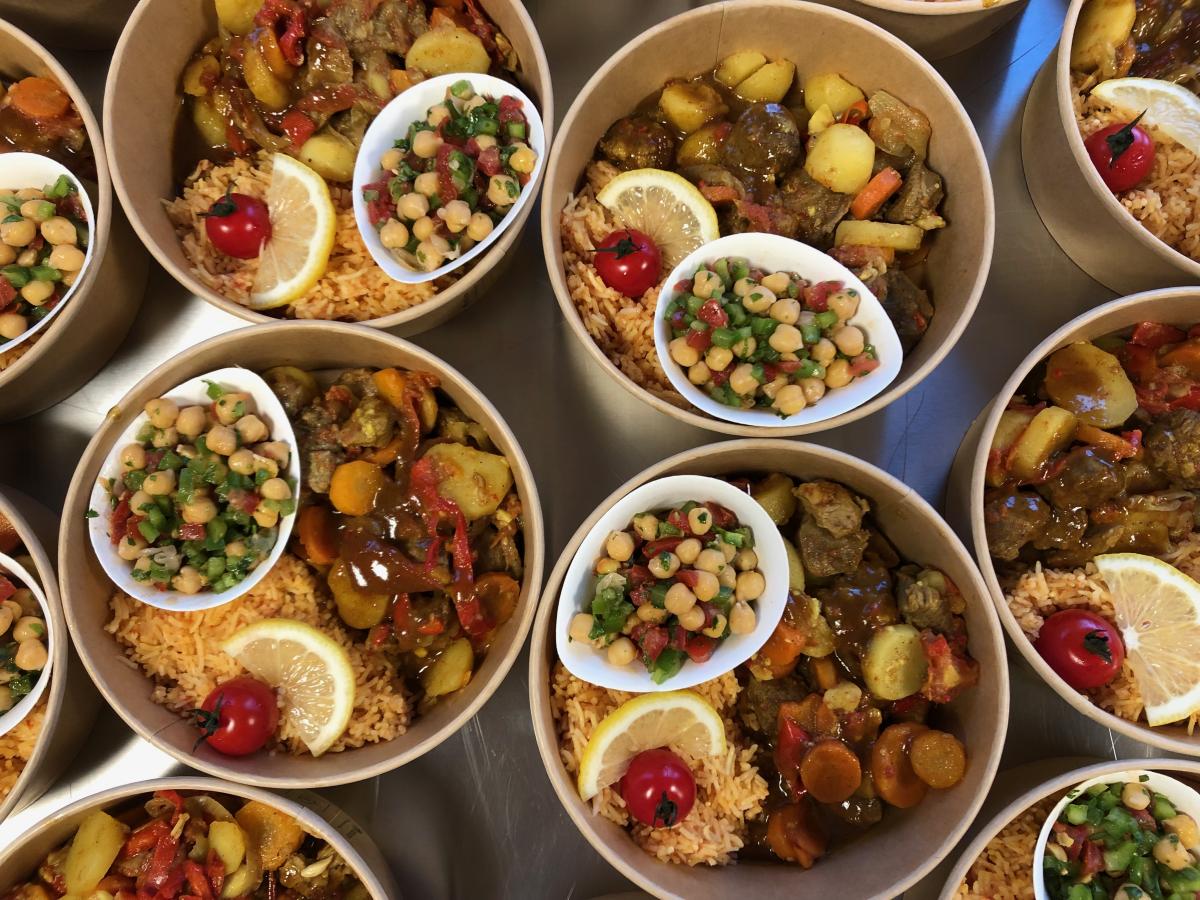One of the goals behind the creation of the Swiss foundation for UNHCR, Switzerland for UNHCR, is to raise awareness in Switzerland about uprooted and displaced people around the world. A few months ago, the foundation celebrated its one-year anniversary, and while the current state of the world does not exactly warrant festivities, we did want to mark the occasion by launching a series of articles, Standing with Refugees, showcasing locals who support refugees. For our eighth article, we met Marianne Roche and Guillaume Boyer, both volunteers in charge of the development of the Alter Start Food programme in Geneva. Alter Start Food is a social enterprise that trains refugees and asylum seekers in Switzerland through the development of a culinary project, with the aim of enabling them to launch their own catering or restaurant service.
Alter Start Food
Marianne Roche : Alter Start is a programme launched in 2017 in Switzerland by the IFPD foundation (which has been working with the most vulnerable for over 20 years). Alter Start is a social incubator that supports people with a migration background to set up their small business in the canton of Vaud and Geneva. Alter Start Food supports those who aim to set up as caterers or restaurant owners. This specific programme provides its beneficiaries with a professional kitchen for the preparation of meals and a professional chef from EHL to help them improve their skills.
Guillaume Boyer : The IFPD Foundation supports entrepreneurial projects in India, Nepal, and Brazil. The director also realised that it was difficult for many entrepreneurs with a background of migration to launch their projects here in Switzerland and that support was needed. The Alter Start project was launched first in Lausanne and then in Geneva. The social enterprise Alter Start Food now sells 250-300 meals per week, which is a success. The project is currently being rolled out in Geneva.
GB : Our two key partners, the Hospice Général and EVAM, help us to identify beneficiaries who have developed a skill in their country of origin and wish to transform it into a product or service in Switzerland. These two partners also help them learn the language and define their project. When a person fits the profile, he or she is put in contact with Alter Start Food to benefit from coaching and training.
But not everyone with a project comes directly to Alter Start or Alter Start Food. Our partners, such as the Hospice Général, are in direct contact with the project holders, and then refer them to the organisation that is best suited to carrying out the project in question. This often depends on the level of language, skills, or geographical factors. There is therefore a network of associations all working towards the same goal: helping people from asylum backgrounds to integrate and develop their projects.

GB : Our project holders were interpreters, shoemakers, architects, painters or photographers in their countries. Most of them were not in the gastronomic and culinary field. When they arrived in Switzerland, they discovered that their diplomas and skills were rarely recognised. Most of them knew how to cook, but it was not their livelihood. This skill was then further developed to strengthen and solidify not only the quality of their recipe, but also to improve their skills as chefs, and to adapt their menus and offerings to the Swiss market.
MR : Obviously, cooking also creates bonds. So it is not only a way to become financially more independent, but also a door to integration.
GB : On a personal level, having been an entrepreneur myself, namely in Senegal in a region that is prone to migration, this crossroads of experiences naturally led me to this project. On the other hand, there is also the motivation that drives our participants. Most refugees and asylum seekers have only one wish: to get out of welfare dependency. Those we work with therefore have an opportunity to be paid, and thus presents an opportunity for employment that gradually replaces social assistance. Beyond that, it is often a matter of pride, of a certain freedom regained, to leave this structure. It is a virtuous circle for both our project holders and the Hospice General to see them become more autonomous.
MR : Social entrepreneurship is an extremely dynamic and operational environment, but it also contains a share of dreams. You obviously want a success story for the people you follow, to see their businesses flourish. But at the end of the day, the process alone is a great experience. The project holders open up a lot of horizons for us, and a multiplicity of human experiences.

GB : There are ups and downs. When you follow people in their projects over a period of several months, you realise the reality that they are living. There is a lot of hope and enthusiasm, but also moments of despair, for example when you realise the realities of the Swiss market, for example the cost of authorisation for a food-truck, and what the management of such projects involves.
Sometimes we go to a meeting to talk about a business plan, and end up spending an hour talking about what's on their minds on a daily basis, about their children, their parents, their worries or whatever. These are really very human moments that go beyond the project alone, there is a lot of humility in sharing these experiences. It's a real richness, and we learn from it every day.
Reciprocity is really at the heart of Alter Start Food. With some of our cooks, the relationships go beyond coaching, beyond mentoring. When you spend time with someone peeling potatoes, preparing meals, you naturally become closer.
MR : Being more operational myself, another aspect that always stands out for me, and which I think is important to note, is that of the volunteers. Volunteers' only remuneration is the time they spend in the kitchen with the project holders. It is incredible to see the atmosphere in the kitchen. We are lucky to have a retired cook who comes to help us in the kitchen. Some of the volunteers know very little about cooking and learn a lot. Others, who are already familiar with it, come for the social aspect: there is something for everyone.

MR : At the moment, our objective is to become more sustainable, more solid over time. We want to develop our project to reach more clients, to make ourselves better known, and above all, to be able to welcome and support more project holders! The people we support here in Geneva are now in the final phase of their project's development. Our short-term objective is therefore also to be referenced as a catering service, to give us more visibility and allow a greater number of people to enjoy our kitchens !
GB : Indeed, there are few catering services for food from the Caucasus, Tibet, Colombia, Algeria or Mongolia. These are special products, which you really don't find every day and for which I think there can be great interest.
MR : You have to get involved in something you love. It's really something that makes a big difference. Just giving a few hours a week is very easy. Volunteers are always welcomed with open arms in projects like ours, and it's really an opportunity to meet people, to encounter others, to be surprised.
GB : You also have to be aware that there is no minimum amount of time to devote, so you shouldn't be afraid. Half a day a month can already have a big impact, not only on a project, but also for the person who joins us as a volunteer. As Marianne mentioned, it's really a bonding activity. There is a certain adventure to it, meeting people, stories, journeys that take us out of our daily lives, that make us travel without having to go far.